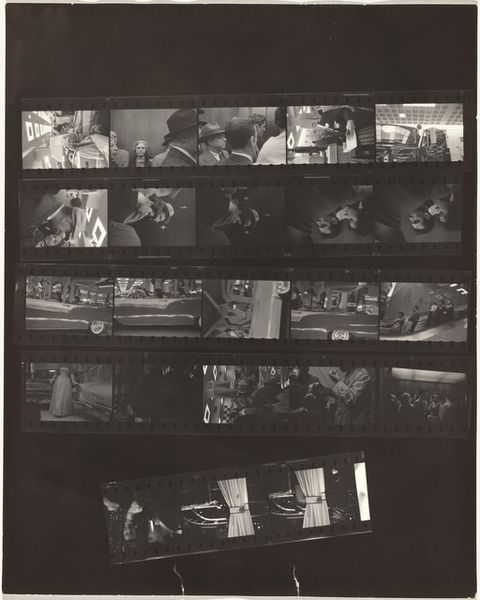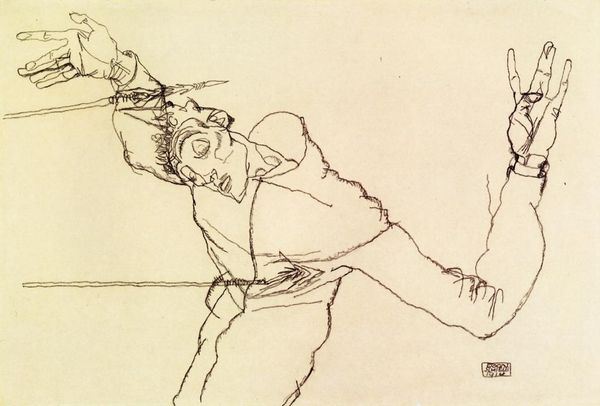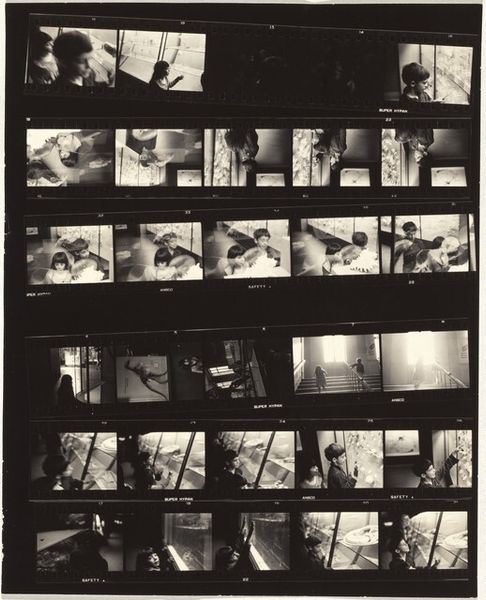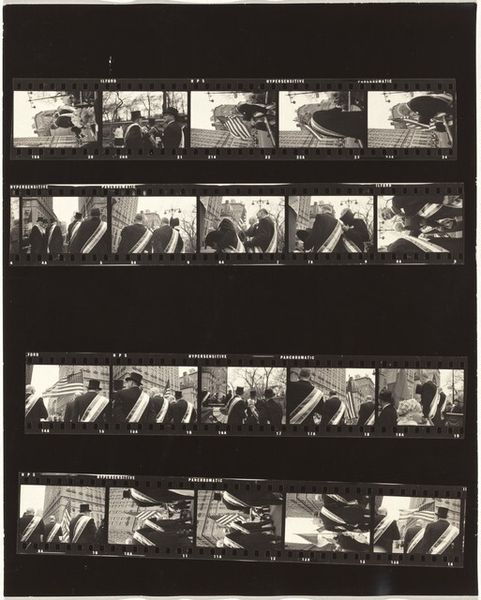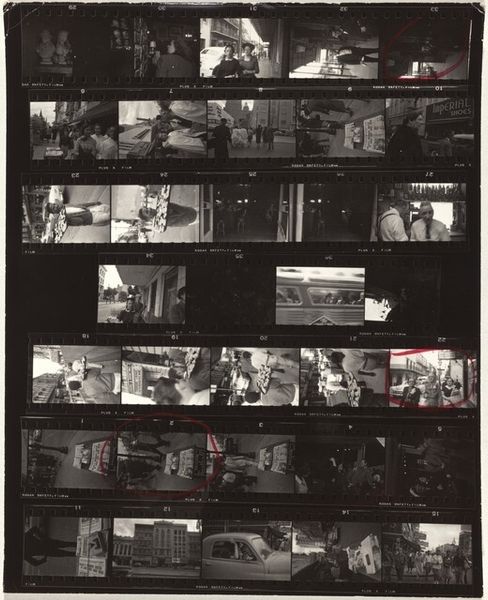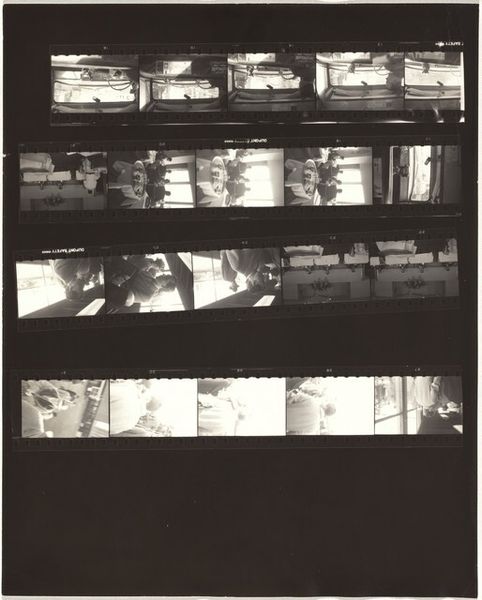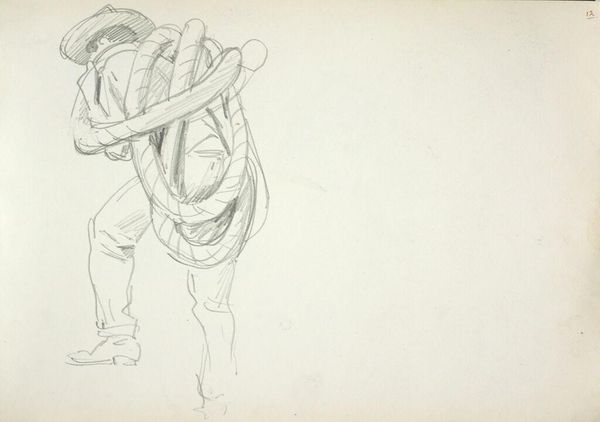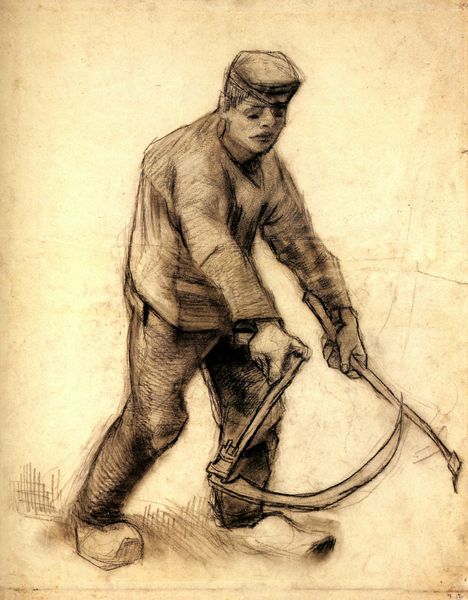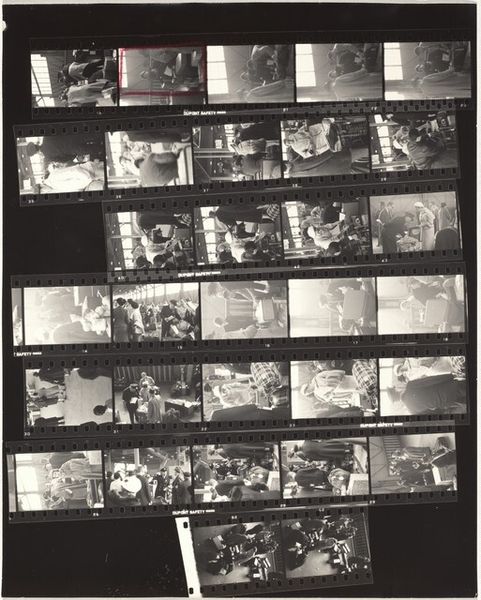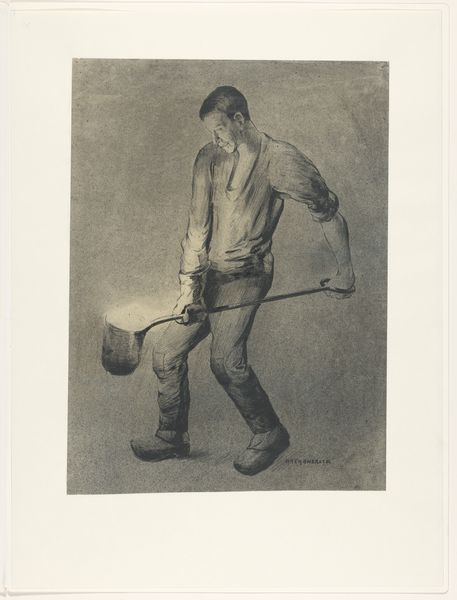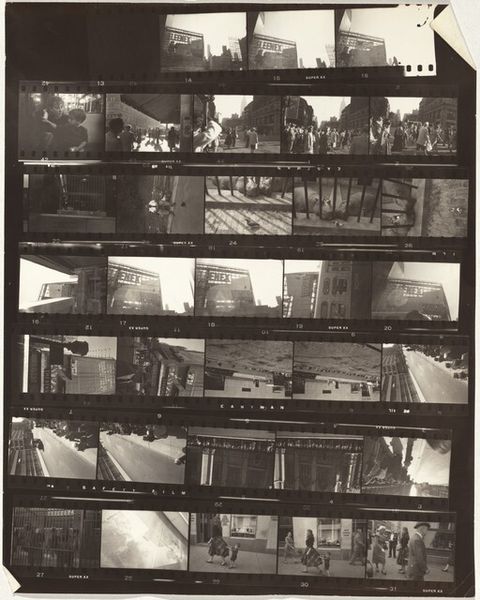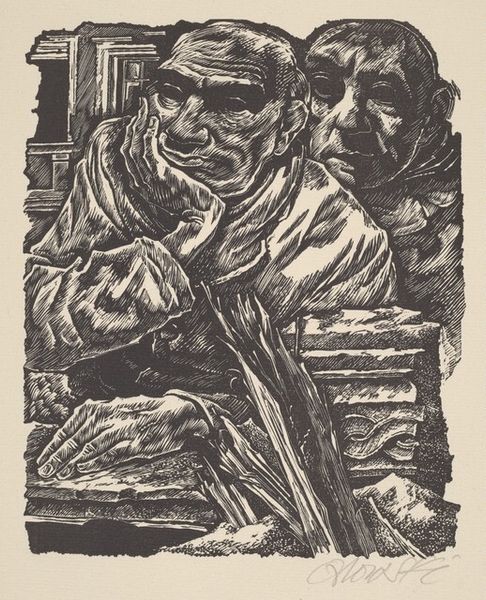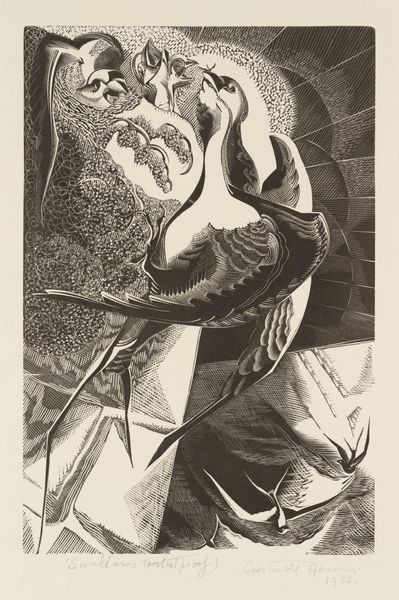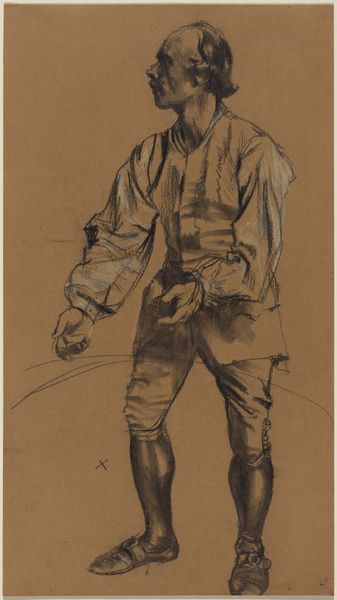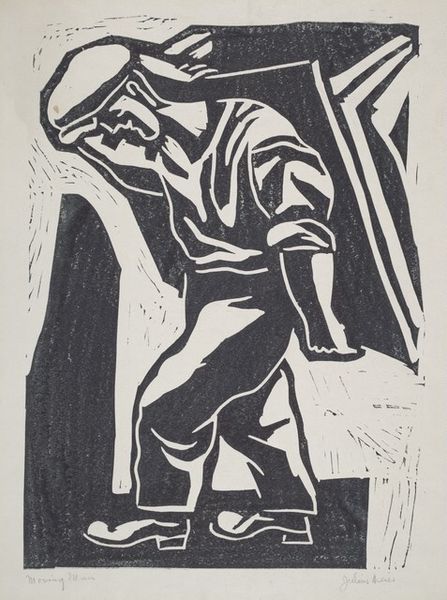
photography, gelatin-silver-print
#
portrait
#
african-art
#
black and white photography
#
social-realism
#
street-photography
#
photography
#
black and white
#
gelatin-silver-print
#
monochrome photography
#
genre-painting
#
monochrome
#
monochrome
Dimensions: image: 24.1 × 16.4 cm (9 1/2 × 6 7/16 in.) sheet: 25.2 × 20.4 cm (9 15/16 × 8 1/16 in.)
Copyright: National Gallery of Art: CC0 1.0
Editor: This is Chester Higgins Jr.'s "Pool Hall, Macon County, Alabama," a gelatin silver print from 1968. There’s such stark contrast, and the composition feels so dynamic. It feels almost voyeuristic, as though we’re catching a fleeting moment. What strikes you about this image? Curator: What I see is a potent document of Black life in the Deep South during a critical moment in the Civil Rights Movement. This isn't just a picture of a man playing pool; it's a visual statement about community, leisure, and resilience in the face of systemic oppression. How does understanding the historical context influence your reading of the photograph? Editor: I guess it adds a layer of complexity. I see the concentration on his face now, but also this idea of a safe space – the pool hall as a refuge from the outside world? Curator: Precisely. Consider how the image challenges stereotypical portrayals of Black men at the time. Instead of victimhood, we witness a quiet assertion of agency and self-determination through everyday life. The pool hall then becomes more than just a recreational space, right? Editor: Right, it becomes a space of resistance, in a way? And that changes everything. I hadn't considered that. Curator: Exactly. Photography has a long history of both perpetuating and subverting social narratives. Higgins uses it here as a tool of empowerment, showing the dignity and complexity of a community too often ignored or misrepresented. This image is not just something we look at; it is a dialogue about power, representation, and the Black experience. Editor: It’s amazing how much one image can contain. I'll never look at black and white photographs the same way again! Curator: That's the power of art – it shifts our perspectives, challenges assumptions, and sparks critical conversations.
Comments
No comments
Be the first to comment and join the conversation on the ultimate creative platform.
